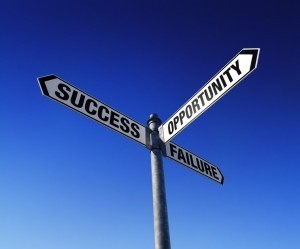Coaches: Your Reps Are Not as Hard-Headed as You Think
 Do you ever feel like your salespeople forget almost everything you coach them on? There are few things more frustrating than a seller repeating the same mistakes over and over, no matter how hard you try to show them the better way.
Do you ever feel like your salespeople forget almost everything you coach them on? There are few things more frustrating than a seller repeating the same mistakes over and over, no matter how hard you try to show them the better way.
Why does this happen?
An easy conclusion to draw might be that our salespeople are simply hard-headed. As one sales trainer recently joked to us, "The term 'adult learner' is HR-speak for 'excruciatingly-slow learner." And while there may be some merit to this suggestion, our research also tells us that there is another side to this story. While salespeople may at times be slow – or even outright resistant – to behavior change, many managers may also be coaching in all the wrong ways.
Here's how: A little known fact is that there are two very distinct types of sales coaching – Deal-Level and Skill-Level. Both are important, yet data from our Coaching Pulse Survey consistently shows that most of us over-prioritize Deal-Level coaching at the expense of Skill-Level. This may have worked in years past, but it becomes highly problematic in the age of Challenger Selling.
Here's why: Deal-Level coaching, which is coaching in its most classic or familiar sense, is a foxhole-by-foxhole approach focused squarely on helping individual sellers troubleshoot individual opportunities that have stalled. It's a great way to close business, but used in isolation, it creates a very real risk: It can cultivate an impression among salespeople that Challenger behaviors are a fallback, "Plan B" style approach, a lever that only needs to be pulled when the playbook breaks down.
This would of course be entirely the wrong way of thinking about Challenger Selling. If the whole reason Challenger Selling is so effective is because customers are looking for a supplier who can provide unique insight, why would we risk postponing our "best stuff" until the very end of a deal?
The goal of Challenger Selling is a differentiated sales experience, and if we wait until late stage to begin differentiating, it may be too late. In fact, some of our newest research is showing that this battle for differentiation may begin even earlier in the customer's buying process than we ever imagined.
So how can managers cultivate this "almost always-on" mindset among salespeople when it comes to Challenger behaviors?
The best step we can take as coaches is to periodically but dramatically elevate our coaching conversation to a highly strategic level, one that encourages reps to think not about individual deals, but about how effectively or ineffectively they are applying Challenger behaviors across all of their deals, regardless of situation or opportunity stage.
Difficult though it may be for managers, the key to generalizing Challenger behaviors is to avoid the tendency to always refer to them in a situational sense, in relation to a specific deal that needs to be closed.
These types of coaching conversations are not easy to kick start, so we've recently compiled a Skill-Based Challenger Coaching Guide and list of recommended "starter questions" managers can use. Challenger Coaching on the deal-level should of course still continue– but it shouldn't be the only or predominant way that reps are supported. In fact we'd encourage managers to strive for a 50/50 split between Deal and Skill-Level Coaching, as we've seen becoming the standard at SAP/Business-Objects.
Will this approach alone finally lay to rest the challenge of salespeople forgetting so much of what we coach them on? Probably not, but it will at least ensure that we are taking responsibility for the portion we own as managers.
Brent Adamson's Blog
- Brent Adamson's profile
- 9 followers



